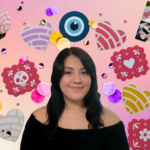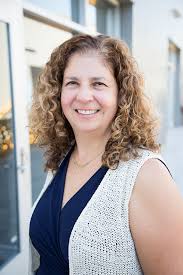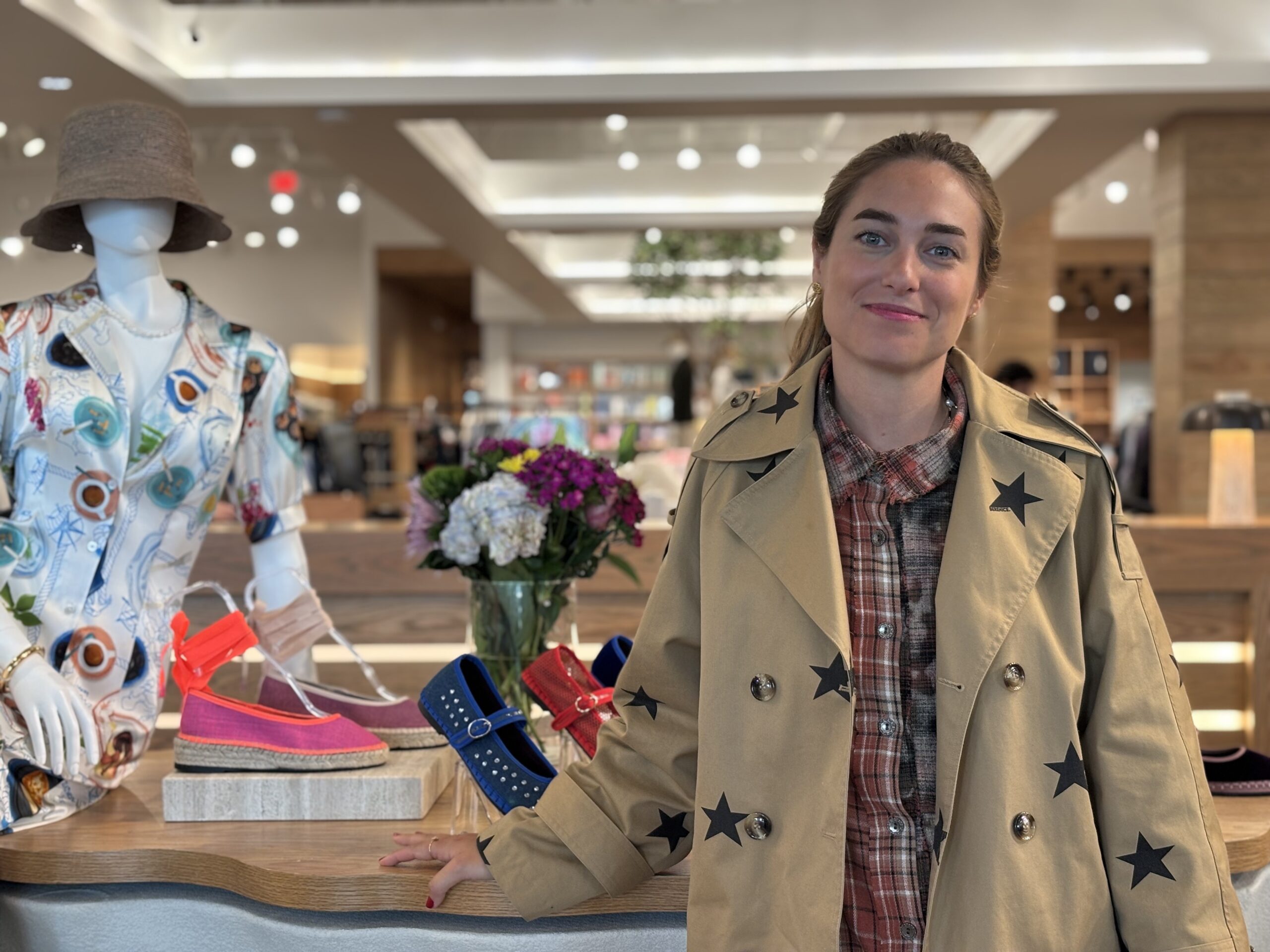By Marisol Acuña
Dr. Ana Ponce is currently the executive director at Great Public Schools Now, where she works closely with community leaders and organizations to improve the public school system. Dr. Ponce worked as the CEO of Camino Nuevo Charter Academy, a network of six charter schools.
With Los Angeles having the largest public school system in California and the second-largest in the United States, people like Dr. Ponce must fight to give these children bigger and better opportunities through their schooling.
Dr. Ponce is a first-generation college student and has completed a fellowship at Columbia University’s Teachers College in New York, earning a master’s degree in bilingual education. She also holds a second master’s degree from the University of California, Los Angeles, and a doctorate in educational leadership from Loyola Marymount University.
Determined to close the achievement and opportunity gaps for low-income minority students, Dr. Ponce works towards this organization’s success and creating improved educational opportunities for children. Her accomplishments led to Forbes Magazine naming her one of the top seven most powerful educators in 2011.
Continue reading for insights on how she got to where she is today, who her inspirations are, and how you can help this movement toward a better public education for every child in America.
What does a day in your life look like?
I’m the executive director at Great Public Schools Now, an organization working to ensure that every Los Angeles student has access to a great public education. We invest in organizations and initiatives that operate and advocate for this same cause. Most of my days consist of working closely with school and community leaders to push the system to be held accountable for improving the education system for all kids in Los Angeles.
What is your biggest drive or motivation?
My biggest drive is my lived experience. Being grossly under-educated and going to college with a false belief that I was an honor roll student only to find out that I could barely pass my college classes was a huge challenge. That fueled my motivation for many years until I became a mother. Now, my biggest drive is that I want every child to have access to what my son has access to. He’s nine-years-old and in third grade. My goal is to help every child in Los Angeles to get the same high-quality public education that my son’s receiving.
In your family, you were the first to graduate from college. What hardships did accomplishing that come with, if any?
My story about graduating from college is probably a little bit unique in that it came with a lot of hardships. Neither of my parents had any formal schooling, and only one of my sisters had graduated from middle school. My brother and I were the first to start school here in this country. When he graduated from eighth grade, he went into the workforce, which was the same expectation my parents had for me. The first hardship really came in me fielding the case to go to high school and work to pay for my tuition, which I did.
And within that hardship came the second: sacrifice. Sacrificing other things for this opportunity helped to build my work ethic and discipline. Doing well in school and maintaining a part-time job was challenging, but I made it through. The next hardship was the separation of being the first person and woman to leave the house to go to college. My family was very Catholic, so that was another hardship: the cultural barrier of the separation. To my parents, it was unknown for a girl to leave the house so young. They didn’t know what college meant. They didn’t know that you went away to college, which was a big learning curve for the entire family –not to mention the more technical ones, like the finances. I was very fortunate to get a full ride to college, and my family did their best to send me checks, which I now appreciate. Even though it may not seem like a lot to them, it meant everything that they wanted to support me in the way they could.
What would you say to young women from a Latin background trying to pursue a college degree today?
I would advise them to start having the conversation early. It is smart to bring parents and guardians into the conversation to demystify fears or concerns. I would also recommend them to get an advocate to help. Whether it’s a teacher or a mentor, or someone they know who has already gone to college, they can help. The best advocates are the college students themselves. They come back, and they will talk to the parents and share what the experience is truly like, and little by little, the parents will slowly understand and overcome their fears.
From a parent’s perspective, it’s not that they don’t want their young daughters to go to college. The apprehension is not coming from a place of wanting to hold them back. It’s coming from a place of love and care. It’s hard for them to understand this is a lifelong investment. And again, it goes back to having those conversations and getting an advocate to work with you to get them to see that.
When you were younger, did you see yourself going into the education field and ending up advocating for so many people? Or did you have other things you wanted to pursue?
When I went to college, I did not want to be a teacher. I had this idea that women could be teachers or nurses, and I did not want to do either. My freshman year came and went, and then so did my second year. That’s when I started to understand the public school system’s challenges and how they directly impacted me. I slowly realized I wanted to learn more about it to give back. Teach for America is a program that started the year before I graduated, so I decided to teach in Los Angeles and be a bilingual teacher. Within two years, I had the opportunity to start a charter school and begin my journey with a blank slate. Now, we define what a public school education can look like for kids, families, and communities in the area. So no, I initially did not think I would be a teacher, and teaching has not been my full career, but I would not change it.
You’ve worked with many people throughout the years. Has there been a specific lesson that stuck with you?
The one lesson that I keep with me is a conversation I had with a middle school student. He was the son of Mexican immigrants who were German immigrants to Mexico. We had a good relationship. One day he came in, and he commented that he realized I was white. It shocked me, but it taught me that perception is important. The lack of representation sends a message to kids. I asked him: “Why do you think I’m white? You know that I’m Mexican.” And he said, “It’s because of the way you talk, it’s because of the way you dress, and it’s because of the car you drive.”
That moment is when I realized the examples he listed were things he associated with and other kids and families related to being white and being separate from the community that they come from. That keeps me centered on how we need to represent and how we need to make those intentional and deliberate connections with communities. So they can see themselves achieve the success that I have achieved. I want to see that with all of the kids. I want to see mothers and fathers believe their daughters can grow up to lead an organization as I do. They can grow up and have an impact as I do. So that’s something that has stayed with me, and I connect to it because our kids need to see themselves being successful. They can’t disassociate from that idea that they can’t achieve if they can’t see it.
What is something that you do every day to keep moving forward?
Staying connected to communities and community leaders. I love getting newsletters from different community organizations and hearing the stories. I always find a way to connect to the communities and families’ experiences that I want to give back to. One of the other things I’ve learned is self-care is essential. We also need to appreciate what we have. Every day I go for a walk or a run. It gives me time to think and reflect and re-energize myself physically and get ready for the challenges of my day-to-day job. This work is hard. This work really is hard. Teachers put a lot of emotion and care into our work, which takes a toll on us. We need to understand that to stay in this for the long term, we have to have the motivation, but we also have to take care of ourselves.
If you could have a free day to do whatever you wanted, what do you think you would spend it doing?
When I have a day off, I try to figure out how to get to a hike. I also like to read. Usually, during the week, I don’t have a lot of free time to read, so if I can get a two-hour block of time, I will take it and get into my book. One of the things I’ve been doing is selecting books in Spanish and reading them to continue to build my vocabulary and fluency in the language. That’s been fun. I love doing that.
Who is someone you looked up to in the past and someone you look up to now?
Someone I looked up to and still look up to is my mother. For her to come to this country at the age of 50, not knowing the language, and not having any formal schooling is astonishing. How she cared for us and how she nurtured us through transitions and trauma meant everything. She has taught me resiliency. She has taught me hope. She has taught me problem-solving and critical thinking. And I continue to carry on with all she gave me. It’s an art to see everything she did with how little she was given. Now, I’m inspired by the youth. Young people are our future, and we need to listen and engage more with them. We’ve (Great Public Schools Now) recently been intentional in bringing in a young perspective into the conversations we’re having —conversations ranging from telling stories about being first-generation students or telling stories about careers. Having the youth livens and refreshes the conversation.
What can we do as the younger generations to help move this all forward?
Our youth needs to be stepping up and organizing themselves to have a presence: showing up and not being afraid of owning their place in our society. I would encourage young women, specifically, to push themselves out of their comfort zone and engage in civic life. Always, always, ask questions. And always, always, leave something behind, whether it’s a question, comment or observation. We need to hear your voice.
Featured image by Greater Public Schools Now
This Q&A has been edited for clarity.
Want to read more stories like this? Please give us your feedback here!
Latinitas Magazine is a department within Latinitas, a registered nonprofit. Readers like you fund us, so please consider donating today. Thank you!











